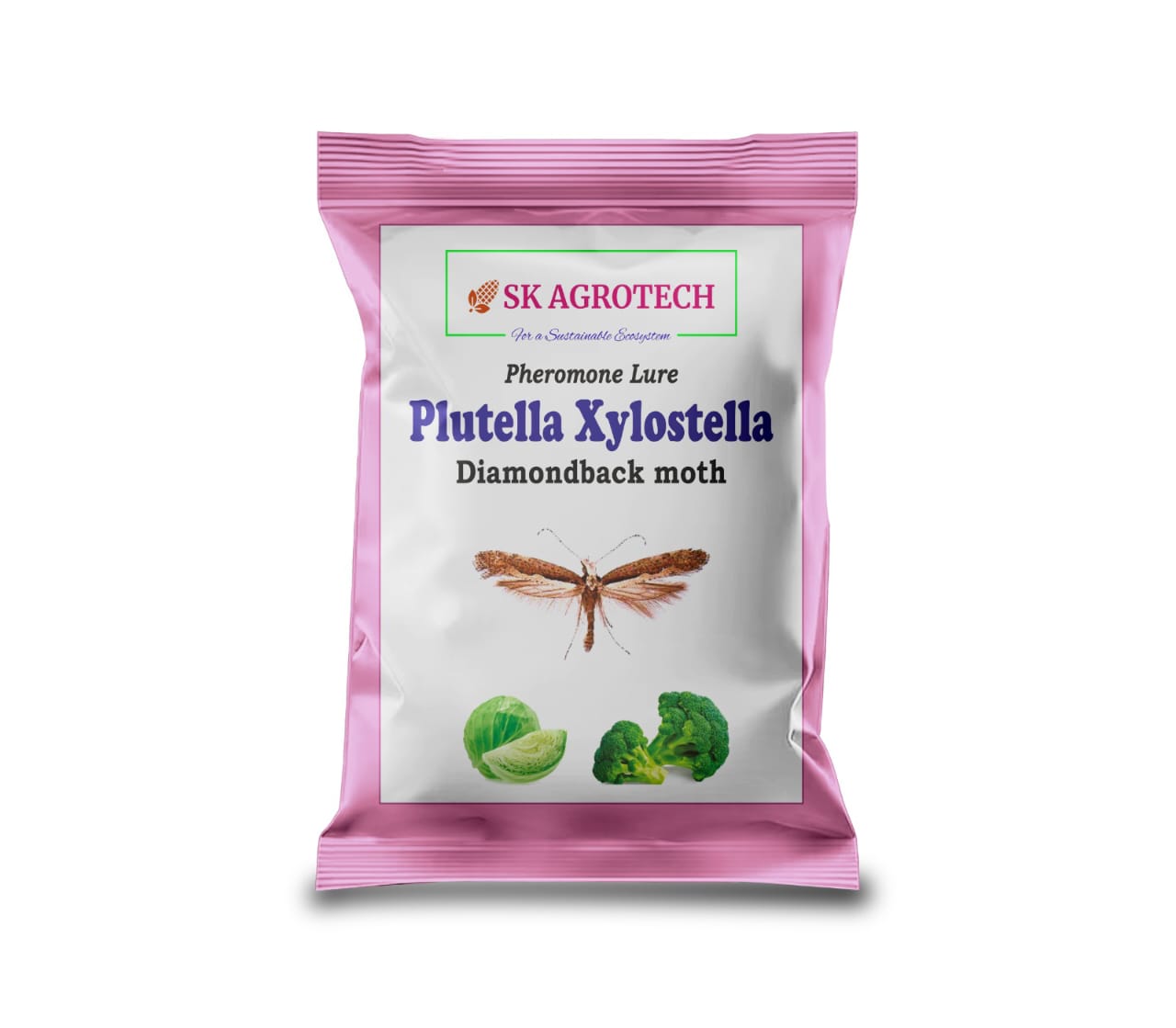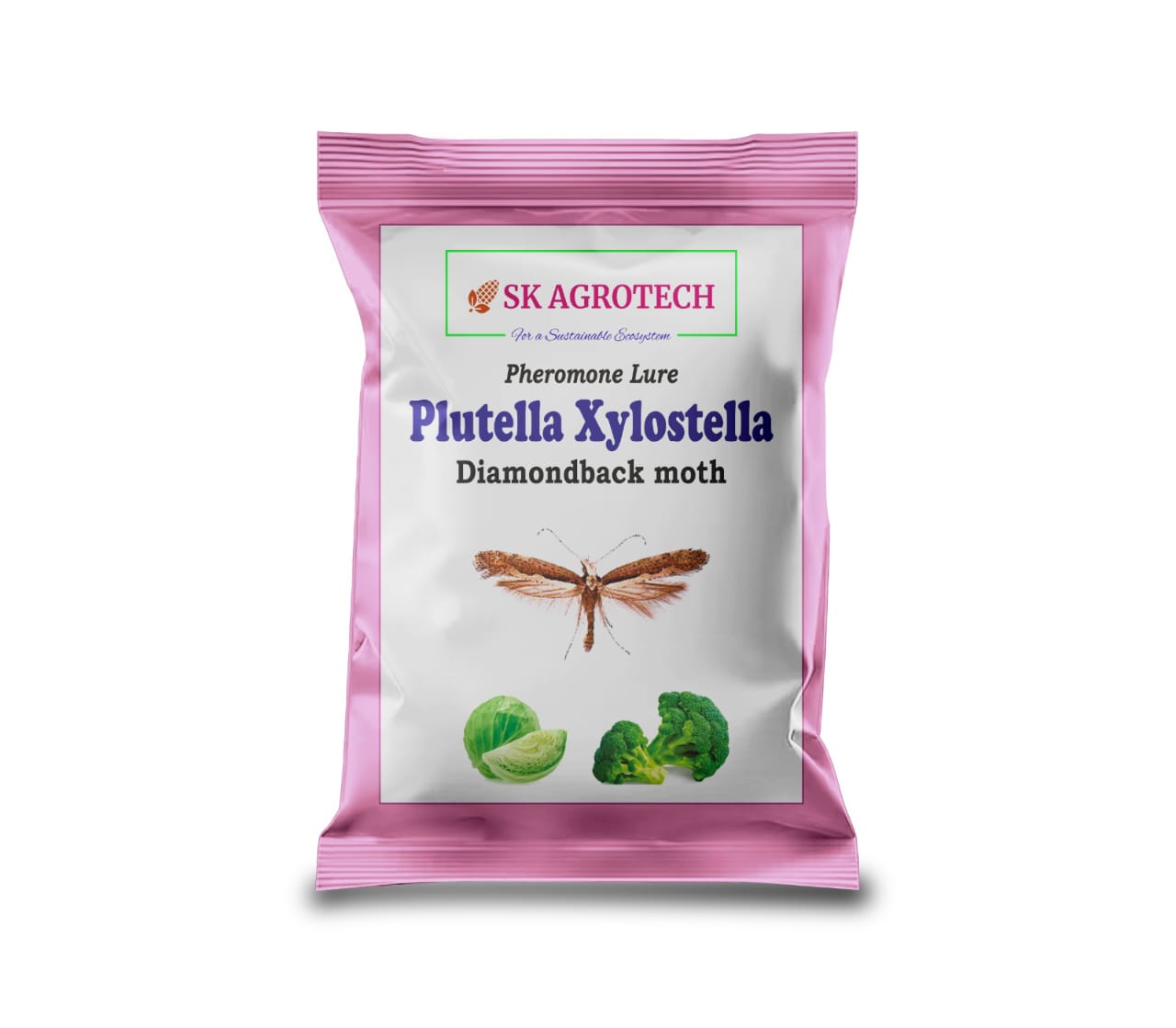



SK AGROTECH
Lure
Pheromone Lure for Diamondback Moth (Plutella xylostella)
Diamond Black Moth (Plutella Xylostella ) Pheromone Lure
Plutella xylostella, also known as the diamondback moth, is a serious pest of cruciferous crops, such as cabbage, broccoli, and cauliflower. It is widely distributed throughout the world and has developed resistance to many commonly used insecticides, making effective management a challenge.
Specifications:
Plutella xylostella is a small, grayish-brown moth with distinctive diamond-shaped markings on its wings. The pest causes damage to crops by laying eggs on leaves, which hatch into larvae that feed on the plant tissues, causing significant damage to leaves and reducing crop yields. Plutella xylostella is capable of developing resistance to insecticides quickly, which has made management of this pest increasingly difficult in many parts of the world.
Recommended for crops : cruciferous crops that are susceptible to Plutella xylostella infestations.